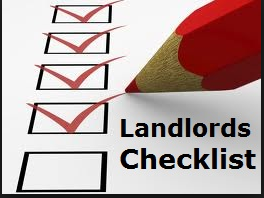Successful Landlord
Gone are the days when landlords were just grumpy old men who came around once a month demanding the rent and tenants were unruly 20-somethings who received too many noise complaints. With more Australians renting property than ever before, property management has become a major enterprise, assisting landlords all over the country. To ensure the sustainability and profitability of your investment property, we have compiled a list of industry-proven tips to help you become a successful landlord…
- Employ a Property Manager
Adopting a business mindset regarding your investment property portfolio is a crucial part of securing your success as a landlord. Engaging the services of a property manager will save you time, money and help you maximise the benefits of your property regardless of the rental market. It is a property managers responsibility to mitigate all loss on behalf of the landlord and take on the role of organising legal documentation, inspections, selecting tenants, monitoring any required maintenance/repairs, and alerting you to these. Selecting the right property manager is a vital part of this process, so it is important to do your research.
**A few Extra Tips**
- Don’t base your decision on fees – discounted fees often mean discounted service
- If you know other investors, ask them for referrals & read online reviews
- Compile a list of questions/things that are important to you & organise an in-person meeting
- Understand the Costs Involved
Having a detailed understanding of the costs associated with your investment property will enable you to stay in control of your finances. There are several fees that landlords should be aware of including property management fees, interest, insurance, repairs and maintenance. If this is your first investment property, it is important to familiarise yourself with property depreciation, negative gearing and tax deductions relating to your property so that you get a full understanding of how your investment is performing.
**A few Extra Tips**
- Depreciation applies to any home – not just newly built properties
- Shop around for the best home loan & keep an eye on interest rates
- Seek out a qualified accountant with experience in property management

- Presentation Pays
Presenting your property in the best light will not only make it more enticing to potential tenants but also attract a higher quality of tenant who will respect your investment. Before any advertising or marketing commences, assess the home to make sure it is clean, neat and visually appealing. While at first glance it may look ‘acceptable’, small details can make a big difference such as making sure all lights work, that all fans are clean, that there is no mould in the bathroom or kitchen and that the lawn is mowed. Picturing yourself inspecting the property as the potential tenant is an exercise that will help you identify what may require further attention.
**A few Extra Tips**
- Small/inexpensive updates including new blinds, professional carpet cleaning & painting can make a big difference
- Keep the decorating as minimalistic/neutral as possible to help the tenant picture it as their home
- If you have employed a property manager, ask them for a list of items they recommend you address
- Insure Your Asset
It’s great if you have long-term tenants and a competent property manager, but it is imperative that you also have insurance to cover the many risks associated with renting out a property. Home and contents insurance does not protect you against many of the common risks that landlords face including severe weather damage, gas or plumbing issues and malicious or accidental damage caused by tenants. Consider and research building insurance, public liability insurance, landlord insurance and income protection before deciding what are the best options to suit your situation.
**A few Extra Tips**
- You do not have to take out insurance through the same company as you did your home loan (if you do, make sure you read the fine print!)
- Establish the correct replacement value to ensure you are not underinsuring your property
- In the case of apartments, do not assume that the body corporate insurance will cover you
- Maintenance & Repairs
Staying on top of required repairs not only shows respect for your tenants and your property but will increase the value of your investment over time. Your appointed property manager will have a system in place as to how you are alerted in the instance that maintenance is required, and your tenants should be aware of this also. There are varying guidelines in each state as to what is classified as an ‘emergency repair’ and a ‘standard repair’, including the time frame and processes around each. It is also important to note that maintenance should always be handled professionally to avoid any legal repercussions on your part.
**A few Extra Tips**
- Document your actions in case you are required to show evidence if a legal situation arises
- Stay on top of small repairs (door handles etc.) as these can often be the most frustrating to tenants
- Asking tenants (or getting your property manager to ask) if they have any issues or suggestions is a great way to keep long-term tenants happy!


